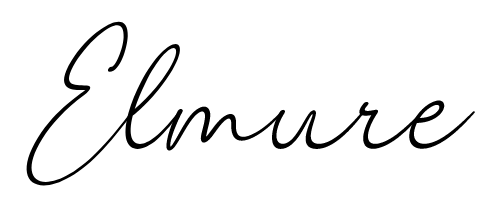Book Recommendations from Naval Ravikant
Naval Ravikant, the modern-day philosopher of wealth, happiness, and freedom, believes that reading is the highest leverage habit. His favorite books span science, philosophy, psychology, and personal transformation. Whether you're building a startup or searching for inner peace, Naval’s reading list blends ancient wisdom with modern insight. These books will challenge how you think about yourself, others, and reality itself. If you’re ready to explore the edges of understanding, here’s where to begin.
Books Naval Ravikant Recommends

*Sapiens* takes readers on a sweeping journey through human history—from the cognitive revolution to the age of capitalism and beyond. Harari explores how myths, social contracts, and shared beliefs shaped civilizations. Naval praises this book for its big-picture thinking and insight into how society evolves. It’s not just about history; it’s about how storytelling created everything from religion to money. A must-read if you want to understand human nature, culture, and the hidden forces that shape our lives.

This book is a curated treasure chest of Charlie Munger’s best speeches, thoughts, and mental models. Naval often refers to Munger’s philosophy of 'worldly wisdom'—using multidisciplinary thinking to make better decisions. *Poor Charlie’s Almanack* is both witty and wise, filled with timeless lessons on investing, human nature, and rational thinking. It’s not a light read, but it’s a book you revisit for life. If you're serious about decision-making and success, this one is non-negotiable.

*Siddhartha* is a poetic tale of a man’s spiritual journey toward enlightenment. Through trials, desires, and solitude, Hesse’s protagonist seeks truth beyond doctrine or dogma. Naval reveres this book for its message that true understanding comes from experience, not secondhand knowledge. It’s meditative, calming, and profound—perfect for readers exploring inner peace and non-dual awareness. This is one of those rare books that can shift your life by how it feels, not just what it says.

A Roman emperor’s private reflections, *Meditations* offers timeless Stoic wisdom on discipline, humility, and mortality. Naval frequently mentions Stoicism as a practical philosophy for clear thinking and emotional control. Aurelius writes with honesty, reminding us to accept what we cannot change and focus on what we can. This book is less about philosophy in theory and more about how to live well. Keep it by your side—you’ll find something new every time you open it.

*The Beginning of Infinity* explores the power of scientific explanations—and why our ability to improve knowledge may be limitless. Deutsch argues that progress is not only possible but inevitable if we value reason and error correction. Naval is deeply influenced by this book’s take on optimism and truth-seeking. It’s dense, mind-bending, and foundational for understanding how ideas evolve and shape reality. If you're curious about the nature of knowledge, evolution, and possibility, this book will expand your worldview.

More than just a martial artist, Bruce Lee was a philosopher of movement, identity, and freedom. *Striking Thoughts* collects his reflections on life, fear, ego, and flow. Naval admires Lee’s clarity and minimalism—both in thought and practice. These pages feel like a distilled dose of direct wisdom, with lessons that apply far beyond the dojo. It’s short, punchy, and perfect for daily reflection or quick insight.

*The Book of Life* offers 365 brief meditations on awareness, attachment, fear, and the illusion of self. Krishnamurti invites readers to watch their thoughts without judgment—and to live with greater presence and clarity. Naval finds great alignment between this work and mindfulness, emphasizing its role in mental freedom. There’s no dogma here—just quiet, piercing truths about human consciousness. It’s not a book to finish, but to live with slowly and deliberately.

Cialdini’s classic reveals how people are influenced—and why we often say 'yes' when we mean 'no.' Naval recommends this to understand how persuasion works in business, marketing, and relationships. The six core principles—like reciprocity and scarcity—are easy to grasp but endlessly applicable. It's essential reading for anyone who wants to think clearly in a world filled with nudges and manipulation. Mastering these ideas is like turning on a light in the dark corners of social behavior.

*Snow Crash* is a cyberpunk rollercoaster packed with hackers, swordfights, satire, and a proto-metaverse vision that feels shockingly prescient. Naval recommends it not only for its entertainment but for its insight into how information, culture, and power can collide in the digital age. Stephenson’s wit and speed are legendary, and this novel blends tech literacy with world-building genius. It’s a cult classic for entrepreneurs and futurists alike. If you like your ideas wrapped in sci-fi brilliance, this is a wild and worthy ride.

In *The Fabric of Reality*, Deutsch blends physics, biology, computer science, and epistemology into a single theory of everything. He explores quantum theory, evolution, and the multiverse with boldness and clarity. Naval sees this book as foundational for understanding the nature of truth and our role in the universe. It’s philosophical science at its most ambitious—and mind-expanding. For anyone fascinated by what’s real, what’s possible, and how we come to know it, this is essential reading.
